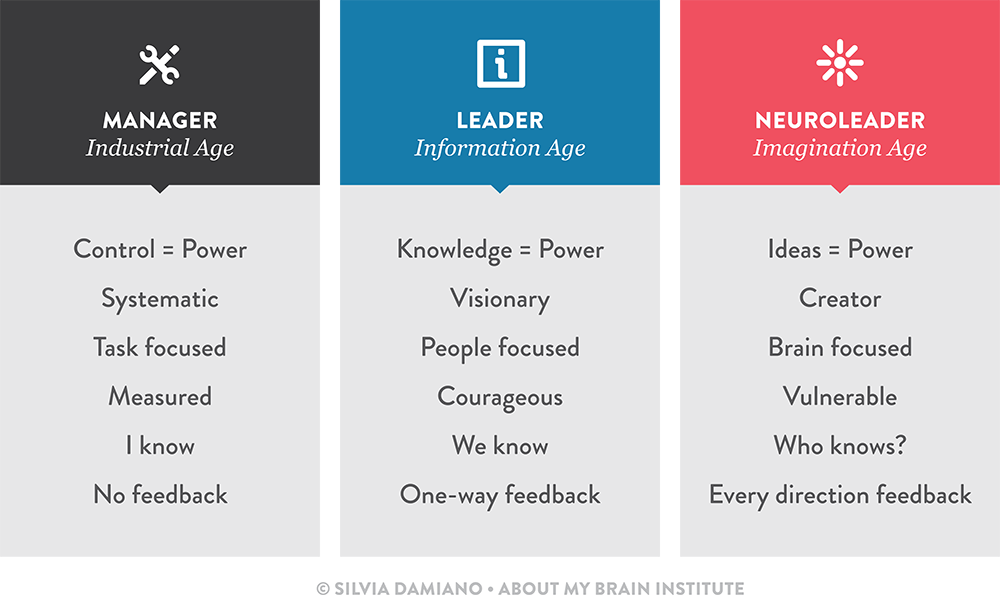Live In Your Potential
Recently we hosted a Google hangout with the wonderful Katharine McLennan, who called in all the way from North Carolina, USA to discuss with us the challenges, triumphs and opportunities facing the world of leadership today, and ultimately the relevance she finds in the accessibility of this in regards to both personal & professional leadership.
As a sort of tradition, McLennan likes to start any presentation she makes with a proverb, and whilst virtual, this time was no different. As a team, we all feel a personal connection to this proverb, and so we’d like to share her adapted Japanese Proverb with you, which she believes defines both the i4 Model and her career thus far.
Strategy without implementation, is a daydream.
And implementation without strategy, is a nightmare.
Either without collaboration, is unsustainable. And all without a kind and curious awareness of self, is meaningless.
From life as a Corporate and Olympic Strategist, turned Leadership Development Artist, McLennan has had exposure to an endless array of leadership models over the years and believes we’re all looking for the same thing, “the holy grail – what is the answer to what works in leadership development?”
Philosophy vs Leadership
Exploring the relationship that can be perceived between age-old philosophy and that of the current imagination age, McLennan believes that somewhere along the way we simply labeled it leadership, and that both have always been defined by two questions:
Who am I? How do I relate to what and whom is beyond me?
As the leadership industry expands and evolves, it is important to note the differences between the leadership tools and models that are available to us, and McLennan advocates that the holistic training and approach of the  enables accessibility to its benefits from both trained leadership professionals and individuals looking to improve their personal leadership skills.
enables accessibility to its benefits from both trained leadership professionals and individuals looking to improve their personal leadership skills.
Taking us on a journey through the past of the industrial and information ages, which have lead to the emergence of the new age – the imagination age, McLennan delves into the benefits offered by this new Brain Focused period.
Explaining that the brain, referred to in this creative age, is the ‘expanded brain’, meaning that it encompasses the three brains of head, heart and gut; and she believes that we must focus on integrating and nourishing all three brains so they play together like an orchestra would.

Leadership development in the current age is increasingly agile in nature, as it must adapt and remain relevant to the VUCA (Volatile, Uncertain, Complex and Ambiguous) world we live in.
Looking to Australia as an example, McLennan highlights the rise of engagement, 360 assessments and coaching companies that are emerging, alongside a growing participation from board members who are becoming interested in learning to look for potential in candidates over a long-term period by understanding “what it means to be an amazing leader, to recognise these qualities and how to develop them.”
This rise in engagement and interest has also lead to an increase in conferences, workshops and events alike that are presenting the growing audience with a variety of options, from “The Happiness & it’s causes” conference and “Mindful Leadership” workshop, to Google’s “Search Inside Yourself”.
Aiding this increasing interest is the emergence of new technologies, namely the Diffusion Tension Imaging (or DTI), which improves upon the existing functional MRI by mapping the communication pathways between the activity occurring in the brain, rather than just the active areas.
This is allowing us to “use neuroscience to help understand the brain and understand how to change the brain, so that we can understand how to change leadership behaviors to make it more effective for an environment that is increasingly more complex.”
Following this, McLennan turns to  book,
book,  , articulating that she “found a real sense of pragmatism for the everyday world of work, which is hard to find…The years Silvia has spent really shows up in an incredibly easy to understand set of qualities (call competencies) and pillars underneath them, that just resonated with me.”
, articulating that she “found a real sense of pragmatism for the everyday world of work, which is hard to find…The years Silvia has spent really shows up in an incredibly easy to understand set of qualities (call competencies) and pillars underneath them, that just resonated with me.”
Positive Psychology
In a world where leaderships assessments all too often highlight the negatives and make it hard for an individual to find light in their feedback, what McLennan really “loves about Silvia’s model, is that it gets us to live in our potential in a pragmatic way through an exploration of how the brain works.”
Silvia joins the conversation and brings to life the ‘aha’ moment that gave rise to the creation of the  , and how the four ‘i’s – integration, inspiration, imagination and intuition – are relevant to both today’s society and the field of neuroscience and leadership development.
, and how the four ‘i’s – integration, inspiration, imagination and intuition – are relevant to both today’s society and the field of neuroscience and leadership development.
She expresses that it’s about neuroscience that we can access and it focuses on the whole person, rather than an individual asset, by recognising the presence of the three brains in the gut, heart and head; and equipping the individual to nurture, grow and develop all three.
- i4 Neuroleader (353)
- Leadership & Culture (336)
- Brain Health & Wellbeing (206)
- Innovation (97)
- Performance (85)
- Our News (79)
- Collaboration (68)
- Agility (53)
- Practitioner Stories (44)
- In The Press (36)
- Make Me A Leader (33)
- Balance (31)
- Integration (30)
- Imagination (29)
- Awareness (23)
- Brain-Friendly Channel (22)
- Brain-Friendly Leadership (22)
- Communication (22)
- Curiosity (21)
- Inspiration (19)
- Intuition (19)
- Attitude (17)
- Courage (16)
- Adaptability (14)
- Case Studies (14)
- Drive (14)
- Generosity (13)
- Ethics (9)
- Mental Readiness (9)
- Influence (8)
- Retreat (8)
- Brain-Friendly Leadership (1)
- Oracle Cards (1)
- 1 November 2025 (2)
- 1 September 2025 (3)
- 1 August 2025 (5)
- 1 July 2025 (5)
- 1 June 2025 (2)
- 1 April 2025 (1)
- 1 March 2025 (8)
- 1 February 2025 (3)
- 1 September 2024 (4)
- 1 July 2024 (2)
- 1 June 2024 (6)
- 1 May 2024 (2)
- 1 April 2024 (3)
- 1 March 2024 (1)
- 1 November 2023 (1)
- 1 August 2023 (1)
- 1 July 2023 (2)
- 1 June 2023 (2)
- 1 May 2023 (4)
- 1 April 2023 (2)
- 1 March 2023 (7)
- 1 February 2023 (4)
- 1 January 2023 (1)
- 1 September 2022 (1)
- 1 May 2022 (3)
- 1 April 2022 (1)
- 1 March 2022 (5)
- 1 February 2022 (4)
- 1 January 2022 (4)
- 1 December 2021 (2)
- 1 November 2021 (4)
- 1 October 2021 (3)
- 1 September 2021 (6)
- 1 August 2021 (1)
- 1 April 2021 (1)
- 1 December 2020 (2)
- 1 November 2020 (1)
- 1 September 2020 (1)
- 1 August 2020 (1)
- 1 July 2020 (3)
- 1 June 2020 (4)
- 1 May 2020 (3)
- 1 April 2020 (4)
- 1 March 2020 (6)
- 1 February 2020 (4)
- 1 January 2020 (2)
- 1 December 2019 (3)
- 1 November 2019 (3)
- 1 October 2019 (5)
- 1 September 2019 (4)
- 1 August 2019 (4)
- 1 July 2019 (4)
- 1 June 2019 (5)
- 1 May 2019 (9)
- 1 April 2019 (9)
- 1 March 2019 (8)
- 1 February 2019 (7)
- 1 January 2019 (8)
- 1 December 2018 (5)
- 1 November 2018 (10)
- 1 October 2018 (16)
- 1 September 2018 (9)
- 1 August 2018 (10)
- 1 July 2018 (9)
- 1 June 2018 (8)
- 1 May 2018 (9)
- 1 April 2018 (9)
- 1 March 2018 (9)
- 1 February 2018 (8)
- 1 January 2018 (8)
- 1 December 2017 (6)
- 1 November 2017 (9)
- 1 October 2017 (9)
- 1 September 2017 (8)
- 1 August 2017 (10)
- 1 July 2017 (8)
- 1 June 2017 (8)
- 1 May 2017 (9)
- 1 April 2017 (8)
- 1 March 2017 (6)
- 1 January 2017 (3)
- 1 December 2016 (4)
- 1 November 2016 (5)
- 1 October 2016 (4)
- 1 September 2016 (2)
- 1 August 2016 (4)
- 1 July 2016 (4)
- 1 June 2016 (2)
- 1 May 2016 (3)
- 1 April 2016 (3)
- 1 March 2016 (7)
- 1 February 2016 (2)
- 1 January 2016 (5)
- 1 December 2015 (2)
- 1 November 2015 (2)
- 1 October 2015 (4)
- 1 September 2015 (2)
- 1 August 2015 (2)
- 1 July 2015 (1)
- 1 June 2015 (3)
- 1 May 2015 (4)
- 1 April 2015 (5)
- 1 March 2015 (3)
- 1 February 2015 (3)
- 1 January 2015 (3)
- 1 December 2014 (3)
- 1 November 2014 (3)
- 1 October 2014 (3)
- 1 September 2014 (5)
- 1 August 2014 (4)
- 1 July 2014 (5)
- 1 June 2014 (3)
- 1 May 2014 (1)
- 1 March 2014 (1)
- 1 December 2013 (2)
- 1 November 2013 (1)
- 1 July 2013 (1)
- 1 June 2013 (1)
- 1 May 2013 (3)
- 1 April 2013 (1)
- 1 March 2013 (2)
- 1 February 2013 (1)
- 1 January 2013 (2)
- 1 November 2012 (1)
- 1 October 2012 (1)
- 1 September 2012 (1)
- 1 August 2012 (2)
- 1 July 2012 (1)
- 1 June 2012 (1)
- 1 May 2012 (2)
- 1 April 2012 (1)
- 1 February 2012 (1)
- 1 January 2012 (1)
- 1 November 2011 (1)
- 1 October 2011 (3)
- 1 September 2011 (2)
- 1 July 2011 (1)
- 1 June 2011 (1)
- 1 May 2011 (1)
- 1 April 2011 (1)
- 1 March 2011 (1)
- 1 February 2011 (2)
- 1 January 2011 (4)
- 1 December 2010 (4)
- 1 November 2010 (3)
- 1 October 2010 (5)
- 1 September 2010 (4)
- 1 August 2010 (4)
- 1 July 2010 (3)
- 1 June 2010 (4)
- 1 May 2010 (7)
- 1 April 2010 (5)
Subscribe by email
You May Also Like
These Related Stories

Te Amo, Je T’Aime, Nakupenda, I Love You

Print Isn’t Dead! Why Reading Print is Good for Your Brain



No Comments Yet
Let us know what you think